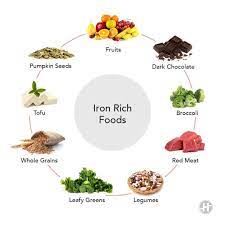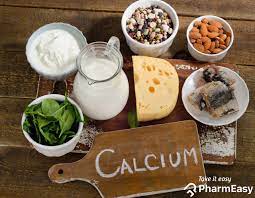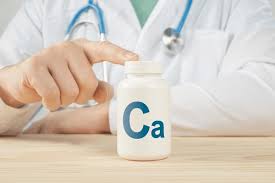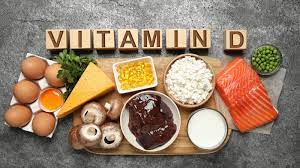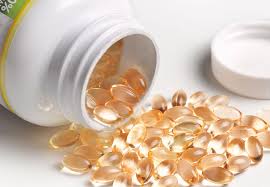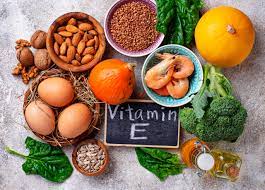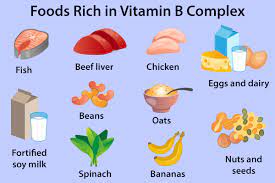Vitamins –
Vitamins play a crucial role in maintaining good health and supporting various physiological functions in the body. Here are some key reasons why vitamins are important:
1. Cellular Function:
– Vitamins are essential for cellular metabolism, ensuring that cells can efficiently convert nutrients into energy. They participate in various biochemical reactions that help the body function properly.
2. Energy Production:
– B-vitamins (such as B1, B2, B3, B5, B6, B7, B9, B12) are particularly important for energy metabolism. They help convert carbohydrates, fats, and proteins into energy that the body can use.
3. Immune System Support:
– Vitamins, especially vitamin C and vitamin D, play a vital role in supporting the immune system. They help in the production and function of immune cells, promoting the body’s ability to fight infections.
4. Bone Health:
– Vitamins D and K, along with calcium, are essential for maintaining strong and healthy bones. They contribute to bone mineralization, density, and overall skeletal health.
5. Antioxidant Defense:
– Certain vitamins, such as vitamin C and vitamin E, act as antioxidants. They help neutralize free radicals, which are unstable molecules that can cause cellular damage. Antioxidants play a role in protecting cells from oxidative stress.
6. Blood Clotting:
– Vitamin K is crucial for blood clotting. It is necessary for the synthesis of proteins that help regulate blood clot formation, preventing excessive bleeding.
7. Vision:
– Vitamin A is essential for maintaining healthy vision. It is a key component of the visual pigments in the retina, contributing to low-light and color vision.
8. Neurological Function:
– Several B-vitamins, including B6, B9 (folate), and B12, are important for neurological function. They play a role in nerve function, neurotransmitter synthesis, and the prevention of neurological disorders.
9. Collagen Formation:
– Vitamin C is crucial for the synthesis of collagen, a structural protein that supports the skin, blood vessels, tendons, and other connective tissues.
10. Reproductive Health:
– Folate (Vitamin B9) is essential for proper fetal development during pregnancy, helping prevent neural tube defects. Other vitamins also play roles in reproductive health and hormone regulation.
It’s important to note that obtaining vitamins through a balanced and varied diet is generally the best way to ensure optimal health. While vitamin supplements can be useful for individuals with deficiencies or specific health conditions, they should be taken under the guidance of a healthcare professional to avoid potential risks of excess intake.
Here’s a more detailed breakdown of some essential vitamins and minerals for women, including their functions, dietary sources, and recommended daily allowances. Keep in mind that individual needs may vary, and it’s always a good idea to consult with a healthcare professional for personalized advice.
1. Folate (Vitamin B9):
– Function: Important for DNA synthesis, cell division, and preventing neural tube defects during pregnancy.
– Dietary Sources: Leafy green vegetables, legumes, fortified cereals, oranges.
– Recommended Daily Allowance (RDA): 400 micrograms for adult women; 600 micrograms during pregnancy.
2. Iron:
– Function: Essential for the formation of hemoglobin, which carries oxygen in the blood.
– Dietary Sources: Red meat, poultry, fish, beans, lentils, fortified cereals.
– RDA: 18 milligrams for women aged 19-50; 8 milligrams for women over 50.
3. Calcium:
– Function: Crucial for bone and teeth health, muscle function, and nerve transmission.
– Dietary Sources: Dairy products, leafy greens, tofu, fortified plant milk.
– RDA: 1,000 milligrams for women 19-50; 1,200 milligrams for women over 50.
4. Vitamin D:
– Function: Aids in calcium absorption, important for bone health and immune function.
– Dietary Sources: Fatty fish, fortified dairy or plant-based milk, sunlight.
– RDA: 600 IU (International Units) for women 19-70; 800 IU for women over 70.
5. Omega-3 Fatty Acids:
– Function: Essential for heart health, brain function, and reducing inflammation.
– Dietary Sources: Fatty fish (salmon, mackerel), flaxseeds, chia seeds, walnuts.
– No specific RDA; aim for at least two servings of fatty fish per week.
6. Vitamin C:
– Function: Antioxidant, important for collagen production, wound healing, and immune function.
– Dietary Sources: Citrus fruits, strawberries, bell peppers, broccoli.
– RDA: 75 milligrams for adult women.
7. Vitamin A:
– Function: Essential for vision, immune function, and skin health.
– Dietary Sources: Sweet potatoes, carrots, spinach, eggs.
– RDA: 700 micrograms of retinol activity equivalents (RAE) for women.
8. Vitamin E:
– Function: Antioxidant, protects cells from damage.
– Dietary Sources: Nuts, seeds, spinach, broccoli.
– RDA: 15 milligrams of alpha-tocopherol for adult women.
9. Vitamin K:
– Function: Important for blood clotting and bone health.
– Dietary Sources: Leafy green vegetables, broccoli, Brussels sprouts.
– RDA: 90 micrograms for women.
10. B Vitamins (B6, B12):
– Function: Essential for energy metabolism, neurological function, and red blood cell formation.
– Dietary Sources: B6 – poultry, fish, bananas; B12 – meat, dairy, fortified foods (for B12, mainly found in animal products).
– RDA: B6 – 1.3 milligrams for women; B12 – 2.4 micrograms for women.
Remember, it’s best to obtain these nutrients through a well-balanced diet, and supplements should only be used if recommended by a healthcare professional based on individual needs and deficiencies.
Vitamins for women’s bodies –
Vitamins play a crucial role in maintaining overall health and well-being, and their importance for women’s bodies is significant. Here’s a detailed look at the importance of various vitamins for women:
1. Vitamin A:
– Function: Essential for vision, immune function, and skin health.
– Importance for Women: Supports healthy skin, mucous membranes, and reproductive health.
2. Vitamin B Complex (B1, B2, B3, B5, B6, B7, B9, B12):
– Function: Vital for energy metabolism, neurological function, and red blood cell formation.
– Importance for Women: Helps combat fatigue, supports healthy skin, hair, and nails, and is crucial during pregnancy for fetal development.
3. Vitamin C:
– Function: An antioxidant that aids in collagen production, wound healing, and immune function.
–Importance for Women: Supports skin health, boosts the immune system, and aids in the absorption of iron.
4. Vitamin D:
– Function: Aids in calcium absorption, critical for bone health and immune function.
– Importance for Women: Helps prevent osteoporosis, supports mood regulation, and is crucial during pregnancy for proper fetal development.
5. Vitamin E:
– Function: An antioxidant that protects cells from damage.
– Importance for Women: Supports skin health, may help with menstrual symptoms, and has antioxidant properties.
6. Vitamin K:
– Function: Important for blood clotting and bone health.
– Importance for Women: Essential for bone density and blood clotting during childbirth.
7. Folate (Vitamin B9):
– Function: Important for DNA synthesis, cell division, and preventing neural tube defects during pregnancy.
– Importance for Women: Critical during pregnancy for fetal development, reduces the risk of birth defects.
8. Vitamin B12:
– Function: Essential for neurological function and red blood cell formation.
– Importance for Women: Vital for energy metabolism, especially in women following vegetarian or vegan diets.
9. Calcium:
– Function: Crucial for bone and teeth health, muscle function, and nerve transmission.
– Importance for Women: Essential for preventing osteoporosis, particularly important during pregnancy and lactation.
10. Iron:
– Function: Essential for the formation of hemoglobin and oxygen transport in the blood.
– Importance for Women: Vital for preventing iron-deficiency anemia, especially during menstruation and pregnancy.
11. Omega-3 Fatty Acids:
– Function: Essential for heart health, brain function, and reducing inflammation.
– Importance for Women: Supports cardiovascular health, brain function, and may alleviate menstrual symptoms.
Meeting the recommended daily allowances for these vitamins through a balanced diet is the most effective way to support overall health. Additionally, individual needs can vary, and consulting with a healthcare professional can help determine specific requirements based on age, health status, and lifestyle factors.





